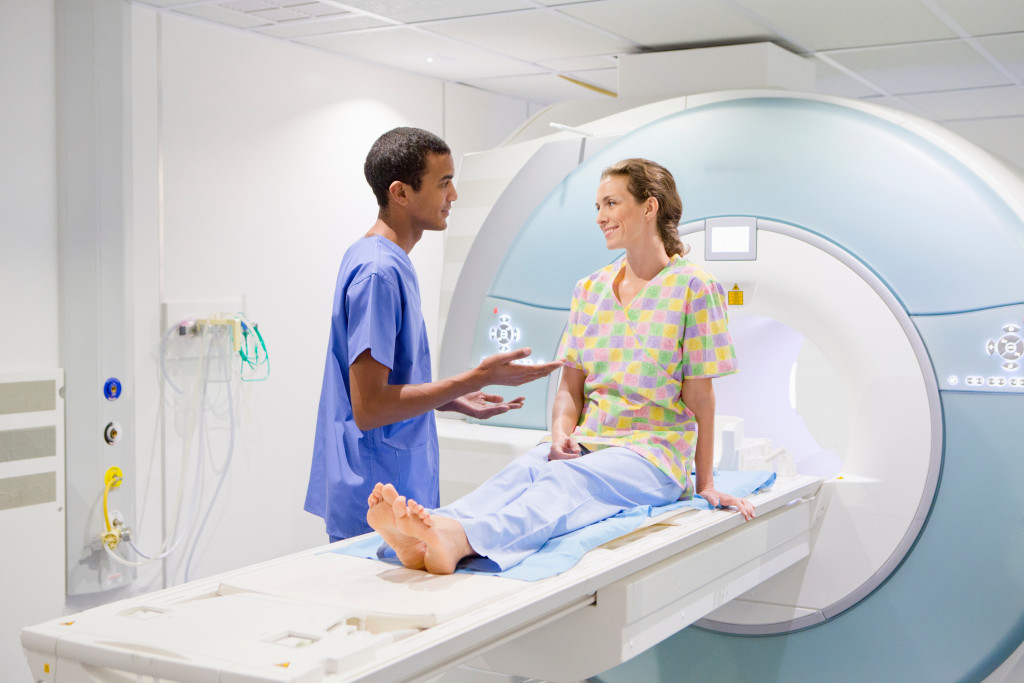In 2021, 13.9 percent of women aged at least 18 reported fair or poor health. According to federal guidelines, about 20.4 percent exercised the recommended amount for both aerobic and muscle-strengthening activity in 2018. Additionally, around 45.2 percent of women aged 20 and over suffer from hypertension, while 41.8 percent are obese. These health issues are also true for men who also experience them.
But women also have health issues that are unique to them. They have to deal with a lot of health issues, both mental and physical. It can be tough to keep up with everything, but taking care of yourself both inside and out is essential. Here are some tips on how to deal with common women’s health issues.
Fertility Problems
Fertility problems are a common issue for women of childbearing age. In the United States, about one in eight couples struggle with infertility. There are many possible causes of fertility problems. These causes include polycystic ovary syndrome (PCOS), blocked fallopian tubes, endometriosis, and low sperm count or motility.
If you’re having trouble getting pregnant or staying pregnant, you can do a few things. First, make sure you’re getting regular checkups with your OB-GYN. They can help you figure out what might be causing the problem and recommend treatment options. Some fertility clinics can help you if you’re having trouble conceiving. Don’t be afraid to seek help if you’re having trouble starting or expanding your family.
With the proper treatment, most women with fertility problems can eventually conceive and have healthy babies.

Endometriosis
Endometriosis is a common health issue among women. It occurs when tissue that lines the inside of the uterus grows outside of the uterus. This can cause pain, infertility, and other problems. Endometriosis is often treated with medication or surgery.
Symptoms of endometriosis vary from person to person. But the symptoms include pelvic pain, heavy menstrual bleeding, prolonged and painful periods, cramps that worsen during menstruation, nausea, vomiting during menses, infertility, and fatigue. Endometriosis can also cause emotional distress due to physical symptoms like depression or anxiety.
Treatment options for endowment vary and depend on the individual. Common treatments include hormone therapy, surgery, or a combination of both. Hormonal medications can help to reduce pain, regulate menstrual cycles, and treat infertility. Surgery is often done to remove endometrial tissue from the pelvic area to prevent further growth.
Living with endometriosis can be difficult, and you must speak with your doctor about the best way to manage symptoms. Finding the right treatment plan can take time, so it’s important to be patient and stick with it. Eating a healthy diet, exercising regularly, and getting enough rest can also help you feel better.
Support is also available for those with endometriosis, such as support groups and online resources. Connecting with other women with the same condition can be incredibly helpful in managing symptoms, finding treatments that work, and providing emotional support.
Women should also check if they can get benefits when they’re dealing with this health issue. If they find it challenging to get the benefits, they should work with a reputable social security disability attorney. The legal professional should have the knowledge and experience to help women with the challenge of getting benefits.
Breast Cancer
Breast cancer is one of the most common cancers among women. It starts in the breast cells and can spread to other parts of the body. Symptoms can include a lump in the breast, swelling, pain, and altered skin texture.
Treatment may involve surgery, radiation therapy, and chemotherapy. Women must be aware of the risk factors, such as family history, age, and lifestyle choices. Regular self-examinations and screenings can help catch breast cancer early when it is most treatable.
There are also lifestyle changes that can reduce the risk of developing breast cancer. These lifestyle changes include exercising regularly, limiting alcohol consumption, not smoking, and eating a nutritious diet.
Women need to speak with their healthcare providers about breast cancer risks and prevention options. With early detection and effective treatment, many people can survive the disease.
In addition to preventive measures, there are also clinical trials and research ongoing to find cures for breast cancer and other forms of cancer. Patients should speak to their healthcare provider about the possibility of participating in a clinical trial.
Women’s health issues are varied and complex, but taking care of yourself both physically and mentally is essential. Don’t hesitate to see your doctor or a specialist if you have any health problems. These medical professionals can help you find the best possible treatment option. Remember, knowledge is power when it comes to taking care of your health!

